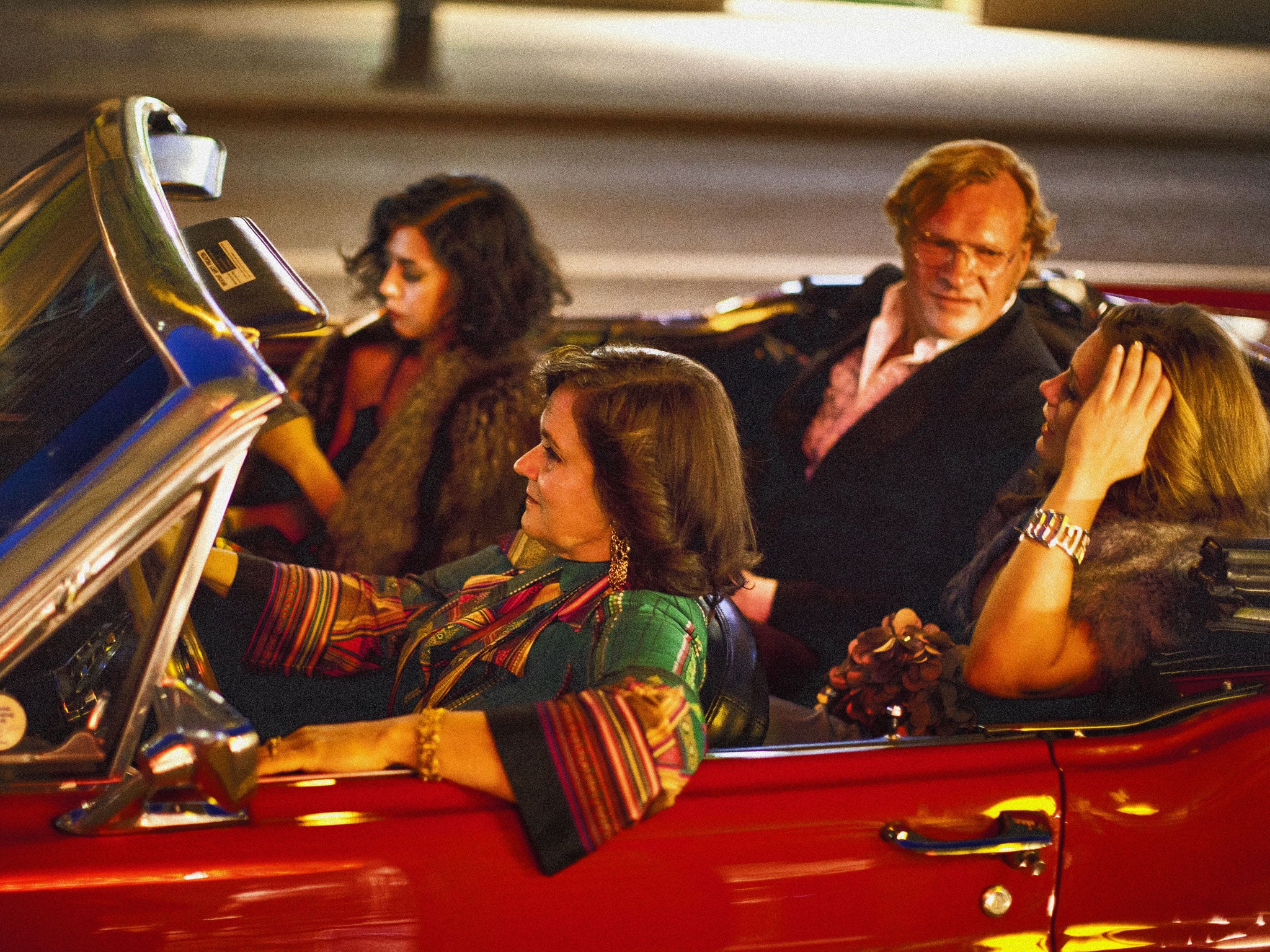Film review: Call Girl - Sweden's answer to Judie Dench gets down and dirty amid the pasties

The title Call Girl hits the screen in red neon 15 minutes into Mikael Marcimain’s film, followed by strippers grinding to jazz flute. Otherwise, don’t expect anything too lurid from this political thriller in which beige trench coats and rain on glass set the tone.
Call Girl is a determinedly downbeat chronicle of surveillance and skullduggery inspired by real events – essentially a 1970s Swedish version of the Profumo affair, with more hidden mics and telephoto lenses.
The ostensible heroine is 14-year-old Iris (Sofia Karemyr), a runaway sent to a juvenile centre but soon recruited by Dagmar Glans (Pernilla August), a madame with more than her share of little black books. Dagmar seems to cater to grey-haired, grey-faced, paunchy politicians who like to keep their socks on while consorting with underage girls.
There is a massive and extremely complex scandal brewing, with women in huge hats keeping secret meetings at consulates, and a byzantine process of surveillance, investigation and cross-investigation, not to mention quashed investigations. Copper John Sandberg (Simon J Berger) is intent on exposing the whole rotten business even though he keeps being roughed up, apparently at the behest of the people who assigned him to the job.
It’s hard to be any more specific, because the story, scripted by Marietta von Hausswolff von Baumgarten, is maddeningly involved, told in staccato bursts, and wildly overpopulated with secondary characters. But if we thought we knew sleaze in the Seventies in the UK, Call Girl is an eye-opener. The film comprehensively dismantles the myth of Sweden at that period as an idyllic haven of sexual enlightenment. While some politicians are standing on a ticket of equal rights, there’s also a move afoot to decriminalise incest and to classify child abuse as such only up to the age of 10 – changes apparently promoted by those same paunchy men in flares.
Call Girl is good at sketching a society that’s lost its moral compass: the atmosphere of endemic corruption somewhat recalled the recent Red Riding trilogy. And it’s good on period look. Everyone has bad skin, half the population of Stockholm wears Elton John-size glasses, and the girls favour wildly unflattering jeans that give them roadmenders’ hips. In both dressing and social atmosphere, Call Girl evokes the 1970s vividly and realistically, rather than staging the period as a perennial saucy cheese-and-pineapple party, as Michael Winterbottom did in his recent The Look of Love.
Otherwise, the film is oddly familiar, with its shots of stenographers in booths transcribing secret conversations, and repeated inserts of reel-to-reel tapes. The mood and visuals are remarkably close to Tomas Alfredson’s Tinker Tailor Soldier Spy – which this film’s director of photography, Hoyte van Hoytema, shot, and on which Marcimain was second unit director. And at 140 minutes, the film ends up being a grind that doesn’t quite cohere. Criss-crossing between Iris’s story and Sandberg’s investigation, it never finds its focus, and needed either to be shorter and tighter or to go the full stretch as a multi-strand mini-series.
The film’s prime asset is Pernilla August’s hard-nosed Cynthia Payne figure, Dagmar, a matronly manipulator who likes to call herself Mama but who can turn chillingly nasty at the drop of a false eyelash. She also likes to join in the festivities, notably at a bizarre VIP dinner – and to see this eminent veteran of Ingmar Bergman’s cinema getting down in pasties is no doubt as mind-boggling to Swedish audiences as it would be for we Brits to see Dame Judi Dench doing the same.
Critic's Choice
Palme d’Or winner Laurent Cantet investigates girl trouble, 1950s American style, in his adaptation of Joyce Carol Oates’s gang novel Foxfire. And London’s BFI Southbank launches into a retrospective of the work of Indian master Satyajit Ray, featuring 1963 Calcutta drama Mahanagar (The Big City).
Subscribe to Independent Premium to bookmark this article
Want to bookmark your favourite articles and stories to read or reference later? Start your Independent Premium subscription today.

Join our commenting forum
Join thought-provoking conversations, follow other Independent readers and see their replies